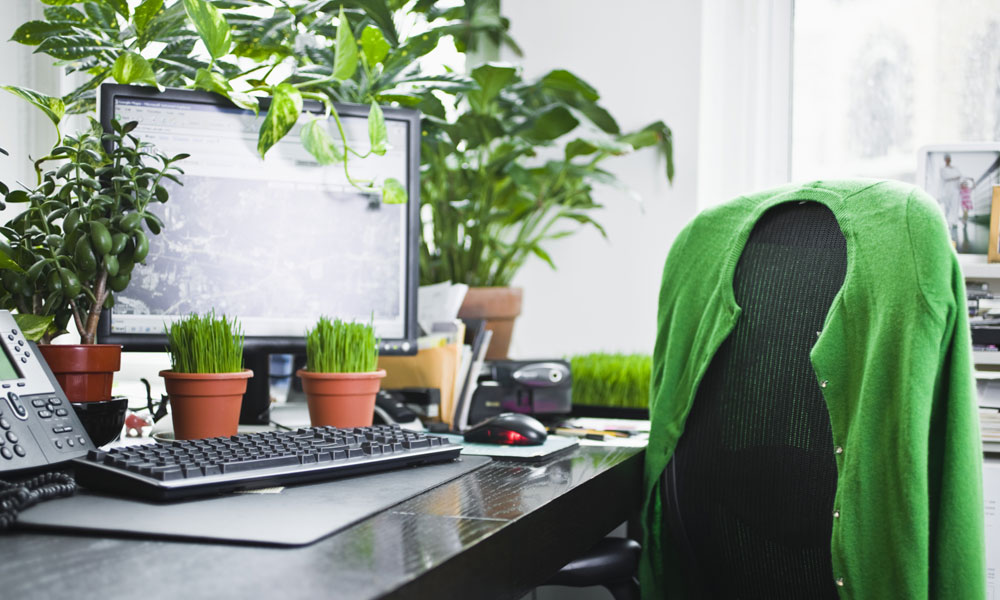
Green Power: Office Plants Make You More Productive
New research illustrates the positive potential of plants at work. Not only are they aesthetically pleasing, but they may also help boost your productivity and mood.
If you want to be more productive at work, try investing in a plant for your desk or office. Researchers in the United Kingdom recently found that employees are 15 percent more productive, not to mention happier, when working in an office surrounded by greenery.
The study, published in the Journal of Experimental Psychology: Applied, looked at whether employees perform better in “lean” office spaces, those that are sparse on foliage, or green offices and discovered leaner is meaner.
“Whatever the environment is, generally speaking, it’s a better environment if it’s enriched, and plants are a very cost-effective way of enriching your space,” one of the study’s authors, Craig Knight of the University of Exeter, told Reuters.
To determine the effects of plants on workers’ productivity and psychology, researchers conducted several studies. In two of them, participants were divided into separate office spaces—one lean with no plants and another that was outfitted with greenery. After three weeks, employees in the green spaces reported increased workplace satisfaction as well as better concentration and perceived air quality compared to those working in the lean spaces.
A third study explicitly measured productivity and found workers in green spaces were 15 percent more productive than their counterparts working in a lean office space.
Part of the explanation behind these findings could be that plants help clean the air and make “a fantastic difference psychologically,” helping make workers more cognitively, emotionally, and physically engaged in their work, Knight said.
Plants in the office have also been shown to help reduce stress and negativity among workers. According to a 2010 Australian study, employees working in offices with plants showed a 37 percent decrease in tension and anxiety and a 64 percent decrease in negativity over the course of three months, as opposed to workers without plants, who showed no changes in either of those categories.
“Modern offices and desks have been stripped back to create sparse spaces. Our findings question [the] widespread theory that less is more—sometimes less is just less,” Alex Haslam, one of the authors of the U.K. study, told The Guardian.
(Fuse/Thinkstock)






Comments